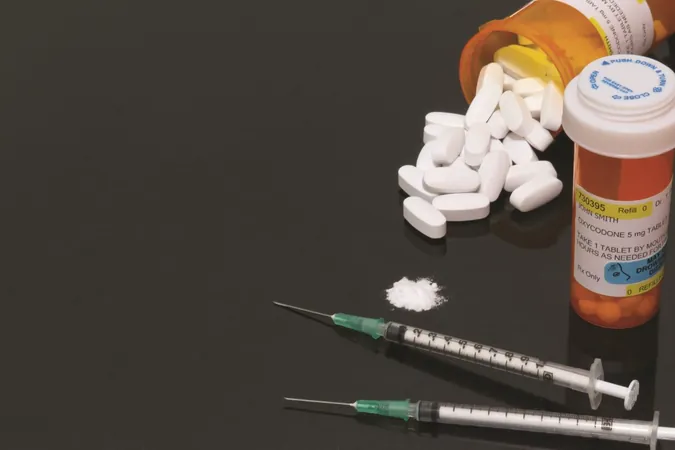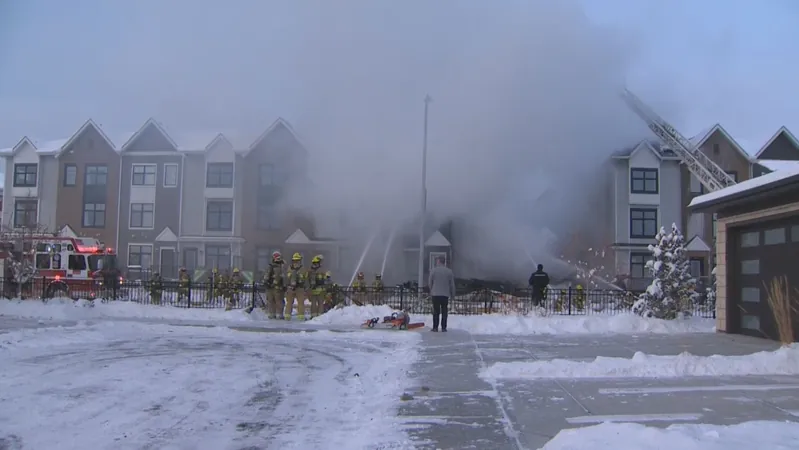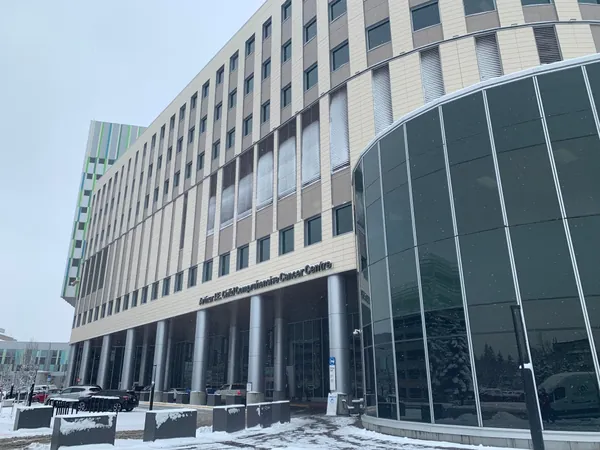
Understanding Canada's Overwhelming Drug Crisis and the Role of Supervised Consumption Sites
2024-11-20
Author: Charlotte
Since the emergence of the modern opioid crisis in Canada in 2016, opioids have tragically become the leading cause of overdose deaths across the nation, claiming over 40,000 lives. The crisis has prompted various provincial responses, from enhancing treatment and recovery services to actively discussing the decriminalization of certain substances.
The Opioid Epidemic: A Brief History
The crisis began in earnest in the late 1990s, when opioids became more widely available and physicians increasingly prescribed them for pain management. This accessibility led to a spike in dependency, and many individuals turned to illegal substances, which were often laced with more potent opioids like fentanyl. Data from the federal government indicated a significant rise in the consumption of diverted or illegally produced opioids between 2010 and 2015. By 2016, the country faced an alarming surge in overdose deaths—numbers that have remained persistently high.
The COVID-19 pandemic exacerbated the situation. With healthcare services becoming less accessible, people were often isolated while using drugs, increasing the risks associated with overdoses. The pandemic saw a staggering nearly doubled increase in opioid-related deaths, culminating in over 15,000 fatalities attributed to apparent opioid toxicity during the two years ending March 2022—a stark 91% increase compared to the preceding timeframe.
The Situation in Ontario
In Ontario alone, more than 2,500 lives were lost to overdoses in 2023. A tragic incident where a passerby was shot outside a supervised consumption site in Toronto prompted the provincial government to reassess its approach to these harm reduction programs. In August 2024, the Ontario government announced it would close nearly half of the supervised consumption sites it funds, alongside preventing new sites from opening. A proposed law, labelled the Safer Streets, Stronger Communities Act, aims to restrict these services from being situated within 200 meters of schools and childcare facilities.
British Columbia's Progressive Yet Complicated Journey
British Columbia (B.C.) has taken notable steps by initiating a three-year decriminalization pilot program starting January 31, 2023. This program allows individuals to carry up to 2.5 grams of illegal drugs for personal use in designated public areas without the fear of criminal charges—a necessary response to the alarming drug-related deaths surpassing 14,000 since 2016. However, despite initial advancements, the B.C. government has hinted at rolling back certain decriminalization measures, indicating an intent to empower law enforcement to make arrests for drug use in public settings.
In an effort to ensure continued support for those struggling with addiction, B.C. has initiated a confidential hotline offering immediate access to opioid treatment options, including prescriptions for medications like Suboxone and methadone, aimed at mitigating withdrawal symptoms and overdose risks.
Alberta's Recovery-Focused Strategy
Alberta's approach has leaned towards recovery-oriented solutions, providing free treatment services through public addiction centers and improved access to addiction medication. Some reports indicate a impressive 55% drop in opioid-related deaths compared to the previous year, though critics have raised concerns over the lack of comprehensive data to evaluate the long-term efficacy of such strategies.
Key Terminology Explained
Understanding the language surrounding the drug crisis is essential, especially for those engaging with policies and interventions. Key terms include:
- Harm Reduction: This encompasses various strategies aimed at minimizing harm linked to substance use while acknowledging that complete cessation may not be feasible for all.
- Supervised Consumption Sites: Designated areas where individuals can use drugs safely under medical supervision, thereby reducing the risk of overdose and the spread of diseases.
- Safer Supply Programs: Initiatives where healthcare professionals prescribe controlled substances as a substitute for street drugs.
- Needle Exchange Programs: Services that distribute sterile needles to reduce the transmission of infectious diseases.
- Decriminalization: The process of removing criminal penalties for possessing small amounts of illicit drugs for personal use.
- Treatment Options: These can range from therapy and inpatient programs to detox facilities and prescribed medications.
As Canada continues to grapple with this pressing public health emergency, the conversation surrounding addiction treatment, harm reduction, and drug decriminalization remains vital. The situation is dynamic, with ongoing changes that could further affect policies and those struggling with addiction.









 Brasil (PT)
Brasil (PT)
 Canada (EN)
Canada (EN)
 Chile (ES)
Chile (ES)
 España (ES)
España (ES)
 France (FR)
France (FR)
 Hong Kong (EN)
Hong Kong (EN)
 Italia (IT)
Italia (IT)
 日本 (JA)
日本 (JA)
 Magyarország (HU)
Magyarország (HU)
 Norge (NO)
Norge (NO)
 Polska (PL)
Polska (PL)
 Schweiz (DE)
Schweiz (DE)
 Singapore (EN)
Singapore (EN)
 Sverige (SV)
Sverige (SV)
 Suomi (FI)
Suomi (FI)
 Türkiye (TR)
Türkiye (TR)